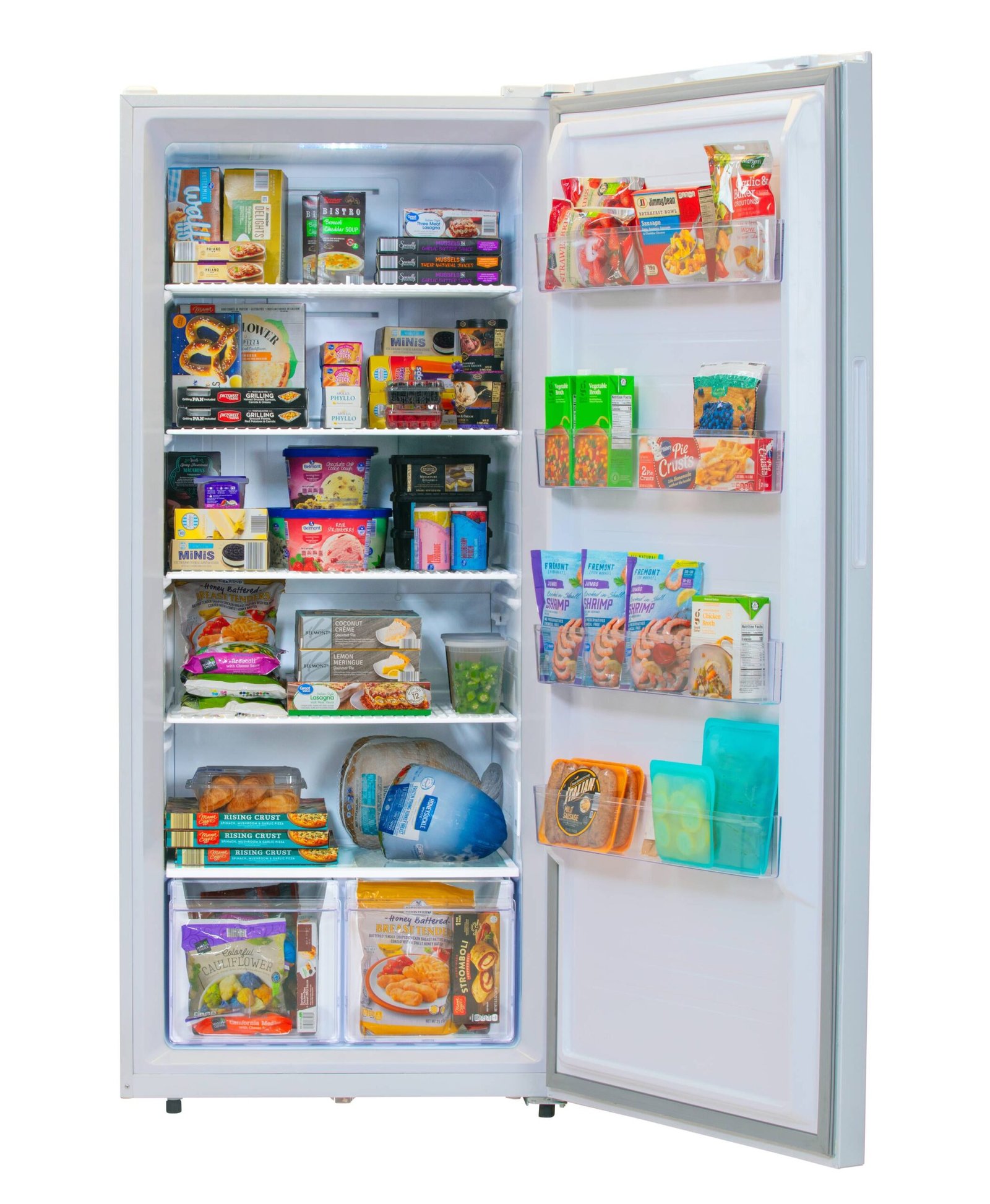Welcome to another in-depth exploration at TheKitchenApplianceDad.com, where we tackle unique questions to help you make the most out of your kitchen appliances. Today, we’re diving into a rather unconventional query: Can a freezer be used as a refrigerator?
Understanding the mechanics behind these common household appliances will not only satisfy your curiosity but also help in making informed decisions about your kitchen setup. Let’s delve into the possibilities and the technicalities of converting a freezer into a refrigerator.
Freezers and refrigerators are designed with similar technology but for different primary functions. The main difference lies in the temperature ranges they are designed to maintain. A standard refrigerator keeps food cool at temperatures from 35°F to 38°F (1.7°C to 3.3°C) to slow down bacterial growth without freezing the food. On the other hand, a freezer maintains temperatures at 0°F (-18°C) or lower, which keeps the food completely frozen.
:max_bytes(150000):strip_icc()/fw-best-freezers-tout-13098ea466d94342ac15c2f55fdaa922.jpg)
The core component that differentiates the temperature outputs in freezers and refrigerators is the thermostat. In theory, by adjusting the thermostat of a freezer, you could command it to maintain higher temperatures akin to that of a refrigerator. However, not all freezers are built with adjustable thermostats that can reach refrigerator-like temperatures.
For those freezers that do not allow manual thermostat adjustments, there is another option: conversion kits. These kits can modify the appliance’s cooling and cycling mechanisms. They typically include a new adjustable thermostat that overrides the existing one. Installation of these kits can vary in complexity, and while some might be manageable as a DIY project, others might require professional assistance.
Before you decide to convert your freezer into a refrigerator, consider the following practical aspects:
Freezers are designed to operate at much colder temperatures and might not be as energy-efficient when used as a refrigerator. This could lead to increased electricity consumption and higher utility bills.
The internal layout of a freezer is different from that of a refrigerator. Freezers typically have larger open spaces without the shelving and compartments that make refrigerators more convenient for storing a variety of foods and beverages.
Modifying a freezer to function as a refrigerator could void any existing warranty. Additionally, operating the appliance in a manner it was not originally designed for could lead to quicker wear and tear, potentially reducing its overall lifespan.
The cost of a conversion kit and potential professional installation must be weighed against simply purchasing a new refrigerator. In some cases, buying a refrigerator might be more cost-effective and less troublesome.
While the idea of converting a freezer into a refrigerator might seem appealing, especially if you have an old freezer lying around, it’s crucial to consider whether the conversion will genuinely meet your needs. Restaurants or home brewers sometimes use converted freezers to store and cool products at specific temperatures not typical of standard refrigerators. However, for everyday use, a dedicated refrigerator usually offers more convenience and efficiency.
If you decide that converting your freezer into a refrigerator is the right move, here are the steps you generally need to follow:
If conversion seems too daunting, consider these alternatives:
Whether you’re an experimental home chef or just looking to repurpose old appliances, understanding the capabilities and limitations of your equipment is essential. At TheKitchenApplianceDad.com, we’re here to help you navigate these decisions, ensuring you make the best use out of every appliance in your kitchen.

